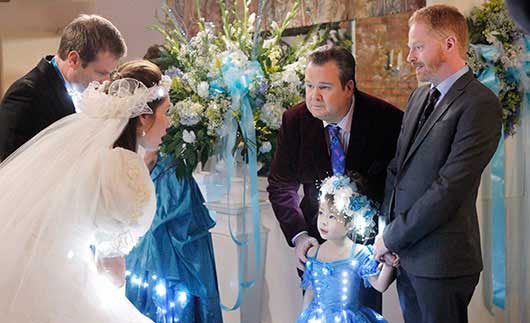
Potty mouth at home? If your kids have one, it’s time to teach them, and yourself, about swearing.
OH WHAT FUN IT IS TO RIDE
Years before we became parents, my husband and I lived in New Jersey and commuted into Manhattan every day. One Christmas Eve, I was riding a crowded A train to the Port Authority, eager to get home for the holiday break. When the train pulled into the 59th Street station, the conductor (who perhaps had suffered some kind of mental break?) decided to rapidly open and close the doors on the passengers trying to board the train. I sat there stunned, watching tired commuters like me (even a woman with an infant in a carrier) scramble madly to avoid getting injured while the conductor mockingly warned them over the loudspeaker to “Stand clear of the closing doors!” When the conductor had had his fun and put the train into motion again, a swarm of angry passengers stormed the locked control room of the train, banging violently on the door and shouting the F-word more times than I’ve ever heard before or since.
Read Related: 10 Manners Every Child Should Know
It was then that I realized that, as a child growing up in suburban Southern California, I never heard an actual, live adult say the F-word out loud. Ever! And if I had, it probably would have traumatized me for months afterward. I quickly glanced around to see if there were any children on this train that was now packed with a raging, F-word screaming mob. There was only one. A little girl, who looked to be about 5 years old, was sitting directly in front of me. Not the least bit disturbed by what was going on around her, she was bouncing up and down in her seat with delight. With a huge smile on her face, she was belting out at the top of her lungs, “JINGLE BELLS! JINGLE BELLS! JINGLE ALL THE WAAAAY!!!!”
A GOOD CATHOLIC GIRL
Like many Latinos, I grew up in a big, Catholic family. My grandparents and parents worked very hard to “assimilate” themselves into the mainstream American culture. We were sternly warned against anything that might make us appear to be “low-class,” which in our family, meant tattoos, toe rings and swearing. I can count on one had the number of times I heard my late father swear. Even the use of Spanglish in public was frowned upon, it was something to be used only among the extended family. Some of the older folks, though, didn’t feel there was any harm in swearing around us kids in Spanish. Many of my cousins spoke only English and couldn’t understand anyway. But I remember my parents getting very upset when their aunts and uncles swore in front of us. Once, my mom chastised her aunt, Maria, for using the word cabron in front of me. My great-aunt put on an innocent face, threw up her hands and demanded, “Tell me what I said that was so bad! Tell me! It’s only a goat!” Let’s just say that if I had ever said that word in front of my mom, I’d be writing this from the moon.
As a kid I was very confused about the concept of “good” words versus “bad” words. How could a word be bad? And, being a good Catholic girl, I couldn’t understand how saying the F-word was equal in evil-ness as taking the Lord’s name in vain. I remember asking all of my Sunday school teachers about it, but I never got a straight answer. Finally, when I was in the eighth grade, someone introduced me to a practical approach to swearing. Surprisingly, it was a nun! Sister Ursula (who still teaches at St. Vincent Elementary) had overheard some of the boys in our class swearing in the hallway outside of her office. She wanted us to understand that what the boys had done was vulgar, but it was not a sin. Not a sin? We all leaned forward in our seats. Wasn’t swearing always sinful? Sister Ursula explained that a word, any word, is only sinful when it is aimed with negative intent at someone else. “If you accidentally hit your thumb with a hammer and say ‘Oh S***!’? That is not a sin. If you say to your little brother, ‘You are a s***.”? That is a very grave sin, indeed.” We all looked at each other as though we’d just been let in on a huge secret—plus we’d just heard a nun say the S-word!!!
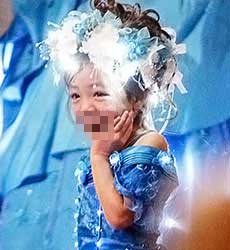 TEACHING YOUNGER KIDS ABOUT SWEARING
TEACHING YOUNGER KIDS ABOUT SWEARING
Lupe Lujan recently retired after almost 40 years of teaching elementary school children in the Oxnard Unified School District in Southern California. I asked her how she dealt with the issue of young children swearing in a classroom setting, but her techniques can easily be applied by parents at home.
“First, I would calmly ask the child if he knows what the word in question means. (Usually young kids don’t actually know the meaning of a profane word. They just know the reaction it elicits.) Then I would ask where the child heard the word. If the child heard the word at home (from a sibling or a parent) then I’d contact their parent to discuss it with them directly.
“I’d also use the event to begin a discussion with the entire class about the concept of respect. This not only helps to take the focus off of the ‘shock value’ of what was said, but helps the children to begin learning how their words and actions affect others. We would all brainstorm ways that we can show each other respect, in our words but also in how we treat each other. Once children understand the concept of respect, then they can then see that using profanity is wrong, not because profane words are ‘bad’ but because they are disrespectful.”
LITTLE BO BLEEP
Recently ABC’s Modern Family re-aired it’s controversial “Little Bo Bleep” Episode in which little Lily (Cam and Mitchell’s daughter) drops the “f-bomb.” Just for the record, the young actress who plays Lily never actually said the word. She actually said “fudge” and they bleeped everything after the “f.” When the episode originally aired some parents were outraged, claiming that some children might try to imitate Lily’s actions. Personally I found this reaction to be as ineffective as Cam and Mitchell’s attempts to “deal” with Lily’s new favorite word. They adamantly tell her it’s a “bad” word. Lily doesn’t understand how it can be a bad word since “it made Daddy laugh.” Then Mitchell tells her, very sternly, that if she says it again he’s going to take away all of her toys. As Lily, completely unfazed, skips out of the room, Mitchell screams after her, “I’m serious!!” Then he says quietly to himself, “She knows I’m not serious.” I’m pretty sure Mrs. Lujan would not have approved of their approach.
I’M RUBBER AND YOU’RE GLUE
Both my husband and I are “writer-types” who read all of the time. Even before we were parents, our view was that there is no such thing as a “bad” word. We are both reasonably educated people who know many, many words. If, in a given situation, a profanity is simply the best way to express one’s thoughts, there’s nothing wrong with that. We have both occasionally sworn in front of the children, and we don’t chastise our friends (especially our friends from New York) when they casually drop a profanity here and there. For the most part, we haven’t had any issues with the kids wanting to copy those words. Maybe because swearing doesn’t raise any eyebrows in our household (just as it didn’t on that A train); it doesn’t hold the naughty thrill it did when I was a child. I’d be lying, though, if I said we’ve never had any…mishaps.
When our daughter was about 10 months old (and already very verbal) we let her play on the floor while my husband and I watched the latest episode of The Sopranos. She didn’t seem to be paying any attention to what was we were watching. But when her sippy cup slipped out of her hand, she shrugged her shoulders and said, in a perfect Carmela Soprano impression, “Aw, f*** it!” That’s when we decided that, however we felt about swearing as a concept, overexposure to profanity should probably be avoided. At least until our daughter was old enough to understand the concept of “knowing your audience.”
I still don’t feel like there is such a thing as a “bad” word unless, like Sister Ursula said, it’s a word meant to hurt someone. It’s really the intent behind it that gives a word it’s power. I guess child swearing is so disturbing because it seems so absurd, like adults speaking “babytalk” to each other. Also some people, like my parents, believe that a child who swears is a product of bad parenting. Only someone who doesn’t know any “appropriate” words would resort to profanity, as far as they’re concerned. But both English and Spanish are languages with thousands or wonderfully rich words to express even the most subtle nuances of our thoughts. And yes, there are some circumstances that are so extreme that only a profanity can aptly capture them.
My daughter is nine years old now and is very embarrassed whenever my husband or I swear. She slaps her forehead, rolls her eyes and begs us not to use “those awful Grownup Words.” She’s even instituted a “swear jar” (I told you she was precocious). It’s not full, but if you pick it up and shake it? It’ll rattle.
Wishing you love with extra cheese—
Nacho Mama

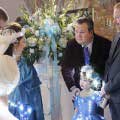

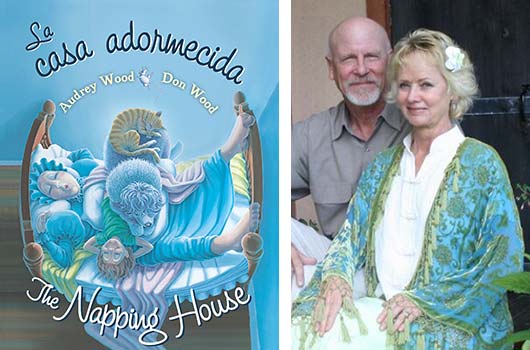
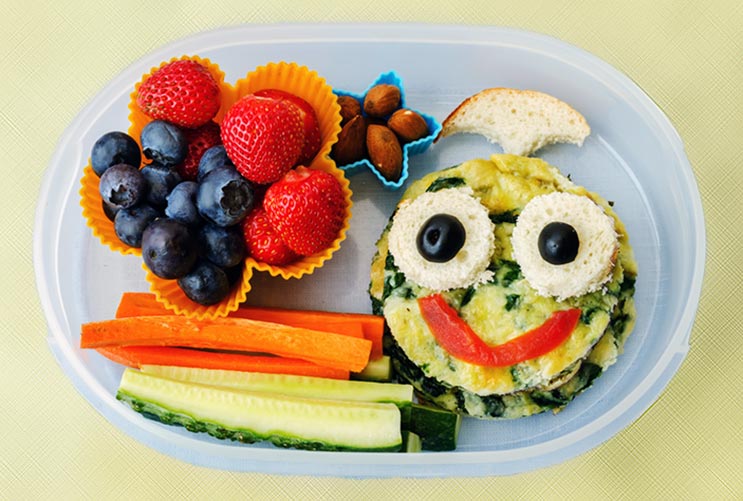


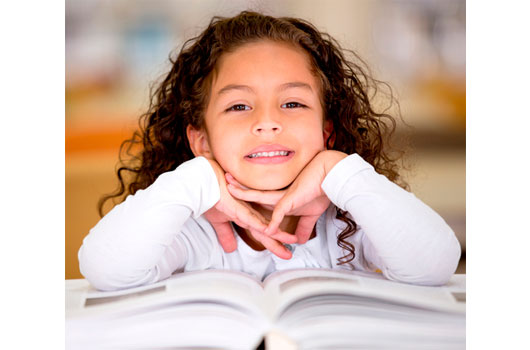




That is so cute of your daughter. I’ll admit, I’m the parent who laughs when very young children swear because they have NO idea what they’re saying – at that age, they’re just regurgitating the language around them, and synthesizing context is quite possibly the hardest part of all. I mean, I remember being put on timeout at a babysitter’s house for saying the word “fart,” and I had no idea that it was an off-limits word! So avoidance… definitely still working on that!